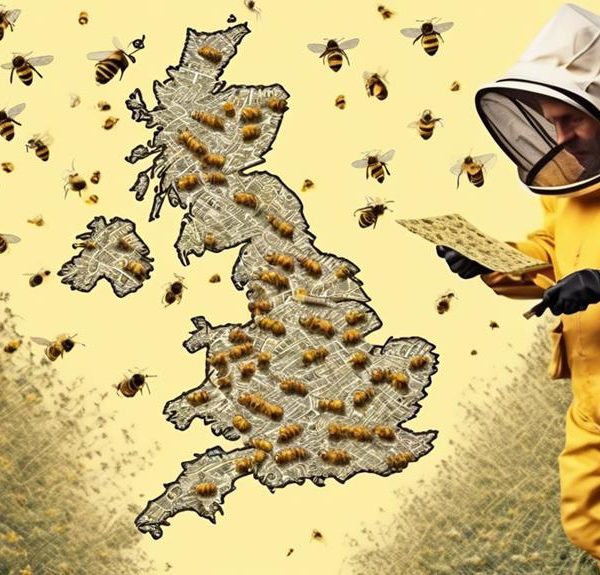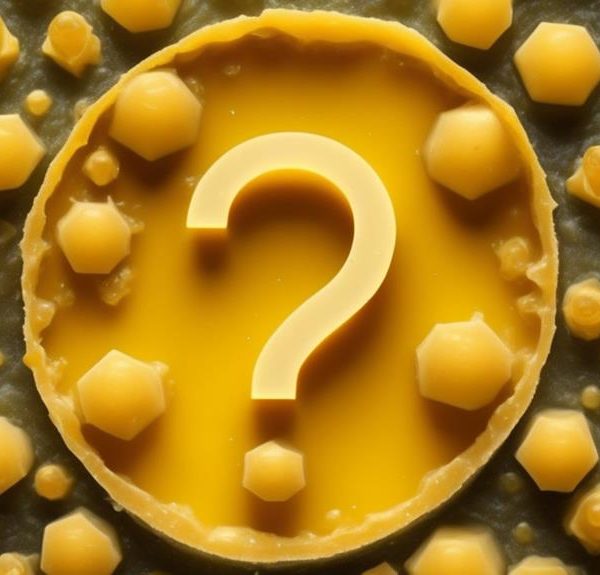Uncover the truth about beeswax and its potential to clog pores in our in-depth exploration of this common cosmetic ingredient.
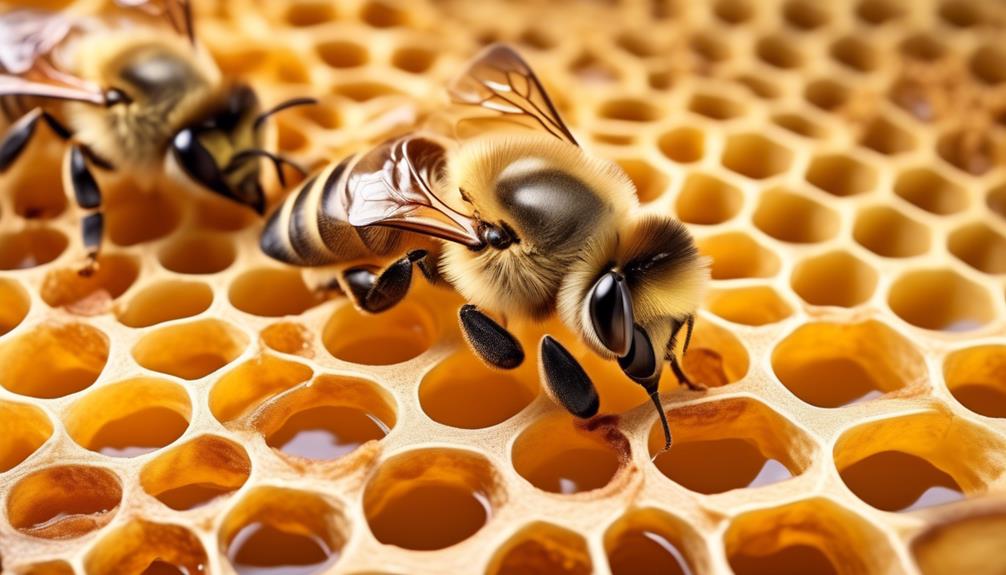
Can Beeswax Clog Pores?
Did you know that almost 75% of the world's cosmetics contain some form of beeswax?
You'd probably agree that's a staggering number, considering the ongoing debate about whether beeswax can clog pores or not.
As someone who cares about their skin, you're probably curious about how this natural ingredient interacts with your skin. Is it a hidden culprit behind those frustrating breakouts, or is it an innocent bystander, wrongly accused?
Stick around, as we're about to explore this fascinating topic together.
Key Takeaways
- Beeswax is a natural ingredient used in skincare products and has moisturizing properties.
- Pure, unadulterated beeswax is typically non-comedogenic, but it can be rated as mildly comedogenic when mixed with other pore-clogging substances.
- Beeswax acts as an emollient, forming a protective barrier on the skin and retaining moisture without blocking pores.
- Beeswax has potential skin benefits such as aiding in cell regeneration, protecting against toxins and irritants, soothing irritated skin, and aiding in wound healing.
Understanding Beeswax in Skincare
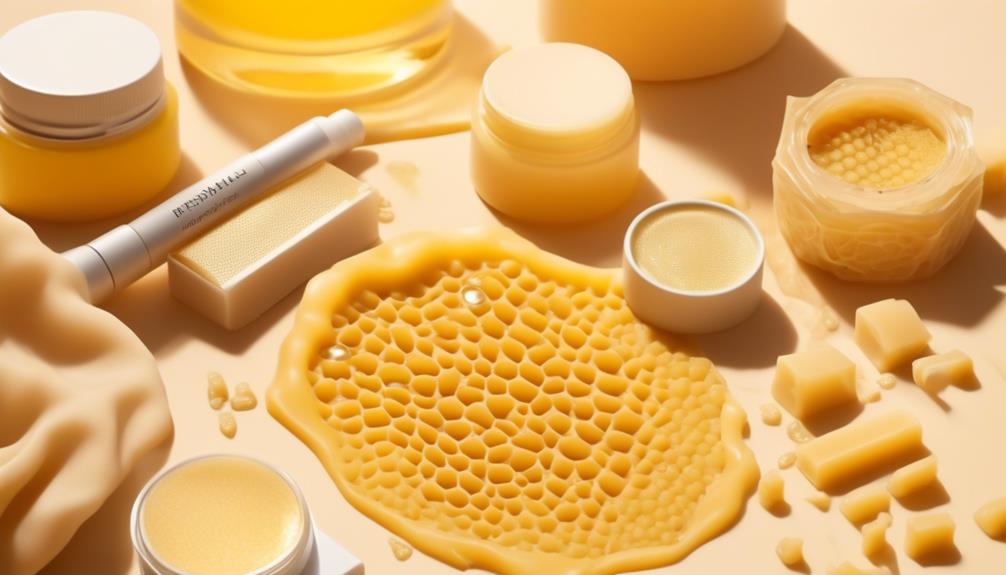
When you delve into the world of skincare, you'll quickly encounter beeswax, a natural ingredient revered for its moisturizing properties, but often questioned for its potential to clog pores. Beeswax is a byproduct of the honey-making process and has been used for centuries in various beauty regimes.
You might be wondering, 'Why beeswax?' Well, it's packed with vitamin A, which is essential for cell regeneration and health. It also forms a protective barrier on your skin, keeping harmful environmental elements out while locking moisture in. This is why it's frequently found in lip balms, lotions, and creams.
However, does beeswax clog pores? The Comedogenic scale, which rates ingredients based on their pore-clogging potential, ranks beeswax as a 2 out of 5. This means it's fairly low risk. But, like anything else, it's not one-size-fits-all. If you've got oily or acne-prone skin, you might want to proceed with caution. Conduct a patch test to see how your skin reacts.
Beeswax: Comedogenic or Non-Comedogenic?
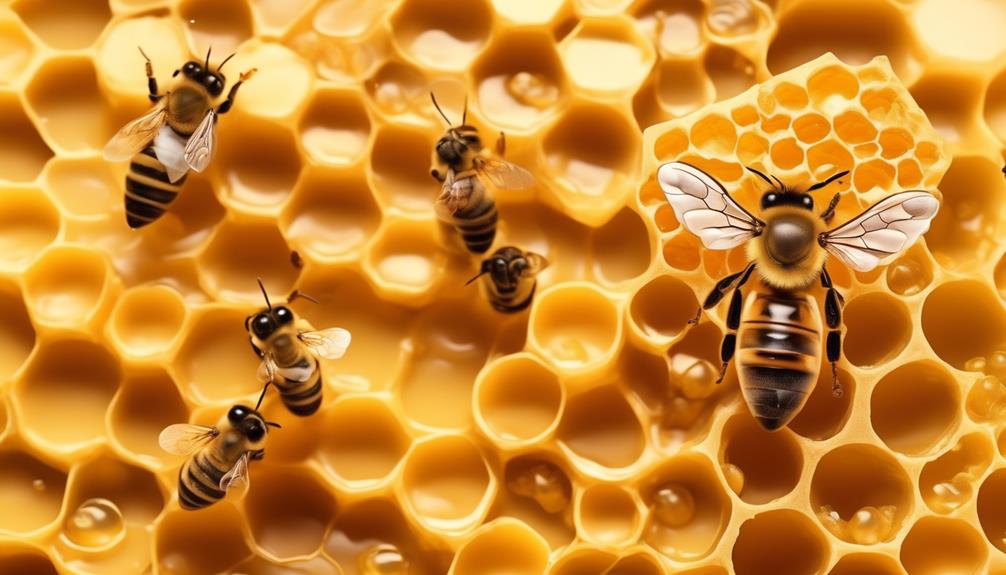
Delving into the question of whether beeswax is comedogenic or non-comedogenic, it's crucial to understand what these terms mean and how they might affect your skin. Comedogenic refers to ingredients that can clog pores, leading to blackheads, whiteheads, or pimples. Non-comedogenic, on the other hand, means the ingredient doesn't block pores and is less likely to cause breakouts.
Beeswax is a complex substance, rich in nutrients and beneficial properties for the skin. However, its comedogenic rating can be a point of confusion. Some sources rate beeswax as mildly comedogenic, while others deem it non-comedogenic. This discrepancy can be attributed to the quality and processing of the beeswax. Pure, unadulterated beeswax is typically non-comedogenic, but if it's mixed with other pore-clogging substances, it could potentially lead to skin issues.
Knowing your skin type is essential in this matter. If you have oily or acne-prone skin, you should be cautious in using products with beeswax. However, if your skin is dry or normal, beeswax can provide hydration without clogging your pores.
How Beeswax Interacts With Skin
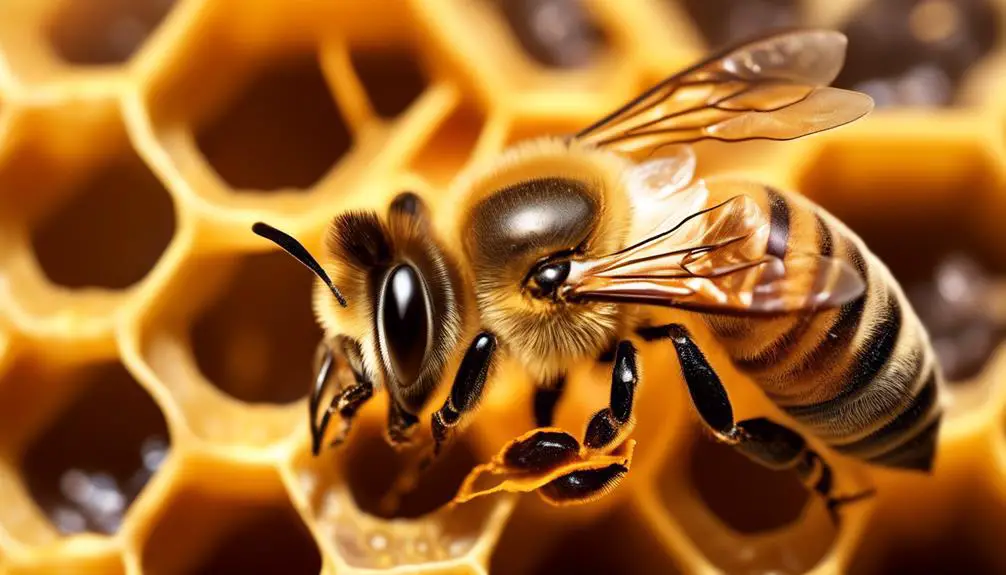
To fully grasp the effects of beeswax on your skin, it's important to explore how this natural ingredient interacts with your skin's surface and underlying layers. Beeswax acts as an emollient and a humectant, which means it not only softens your skin but also retains moisture. It forms a protective barrier on your skin, locking in hydration and shielding it from environmental damage.
However, you might be wondering, does this barrier clog pores? The answer is somewhat complex. While beeswax does create a seal on the skin's surface, it's considered non-comedogenic, which means it doesn't block pores like other heavier substances might. Still, the way it interacts with your skin depends on your skin type and overall condition.
For sensitive or acne-prone skin, it's important to note that beeswax doesn't increase sebum production, the culprit behind acne. However, if it's mixed with other comedogenic ingredients, you may encounter pore-clogging issues. In essence, while beeswax itself is largely beneficial for the skin, it's crucial to check other ingredients in your skincare products to ensure they aren't creating a pore-clogging cocktail when mixed with beeswax.
Potential Skin Benefits of Beeswax
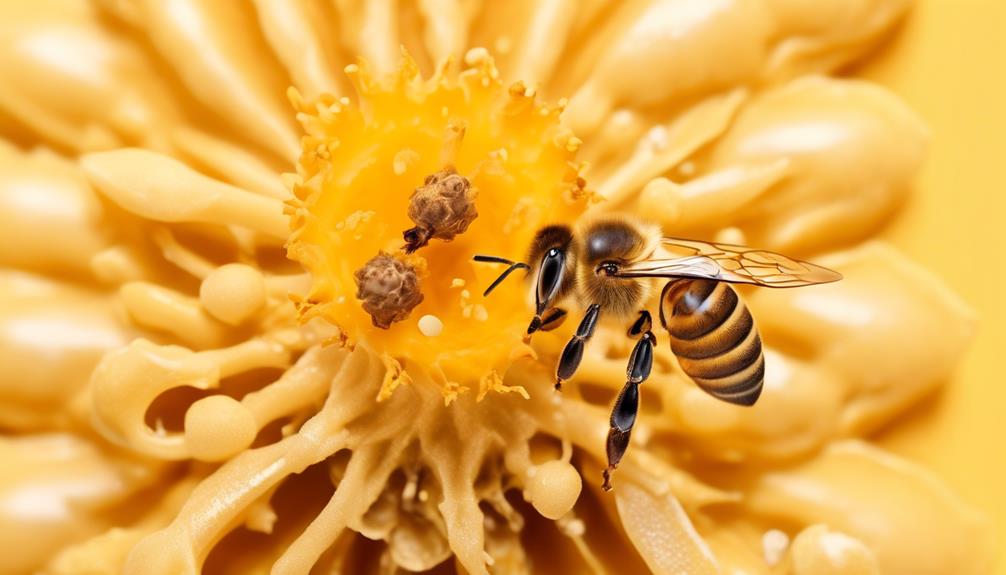
Harnessing the power of beeswax in your skincare routine can offer a plethora of benefits, thanks to its rich, nourishing properties. Beeswax is an excellent source of vitamin A, which is essential for skin health. It aids in the regeneration of cells, helping to reduce the appearance of aging and wrinkles.
Furthermore, beeswax forms a protective layer on the skin's surface. This barrier not only locks in moisture for deep hydration, but also shields your skin from environmental toxins and irritants. Despite this, it doesn't clog pores, allowing your skin to breathe while staying protected.
Moreover, beeswax's anti-inflammatory properties can soothe irritated skin and reduce redness. It's particularly beneficial for those with sensitive or acne-prone skin as it can calm breakouts without exacerbating them. It also aids in the healing of wounds and minor cuts, thanks to its antimicrobial properties.
Addressing Beeswax and Acne Concerns
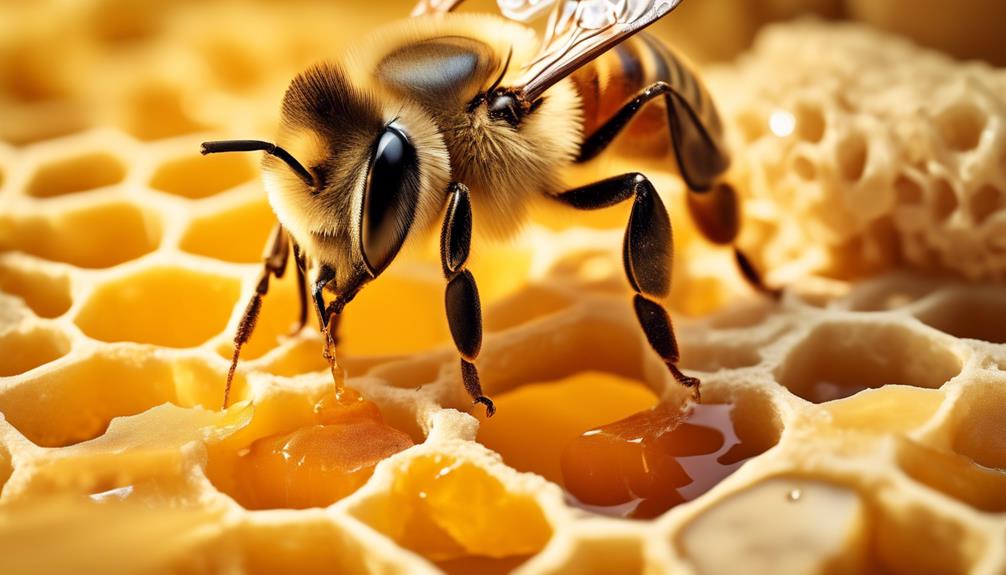
While beeswax can be a game changer for your skincare regimen, it's essential to understand its relationship with acne to ensure you're getting the maximum benefits without adverse effects.
You might've heard that beeswax is comedogenic, meaning it can clog pores and cause breakouts. However, it's not that straightforward. Beeswax itself isn't inherently bad for acne-prone skin. It has a comedogenic rating of 2 out of 5, which implies a moderately low likelihood of clogging pores. But, remember, everyone's skin reacts differently, what works for one may not work for another. Therefore, if you're prone to breakouts or have oily skin, it's best to proceed with caution.
Moreover, many beeswax-based products contain other ingredients that might contribute to acne. Before you blame beeswax, inspect the other components in your products. For instance, coconut oil, which often pairs with beeswax in skincare, has a high comedogenic rating.
Lastly, don't overlook the importance of a thorough cleansing routine. Regardless of the products you use, if you're not effectively removing them at the end of the day, you're increasing your chances of clogged pores and breakouts.
Frequently Asked Questions
What Are Other Common Uses of Beeswax Outside of Skincare?"
Besides skincare, you'll find beeswax being used in a variety of ways. It's often incorporated in candle making due to its slow, clean burn. It's also found in food preparation as a coating for cheese to prevent spoilage.
In the art world, beeswax is a key ingredient in encaustic paintings. Additionally, it's used in lip balms and hair products for its moisturizing properties. These are just a few examples of its versatility.
Are There Any Potential Allergic Reactions to Beeswax?"
Yes, you can have allergic reactions to beeswax. It's not common, but some people may experience symptoms like skin rashes, hives, or itching. There might also be more severe reactions like difficulty breathing.
It's always best to do a patch test first before using products containing beeswax extensively. If you notice any adverse reactions, discontinue use immediately and consult with a healthcare professional.
Always be cautious when introducing new products to your skincare routine.
What Are the Differences Between Beeswax and Other Skincare Ingredients?"
You're probably wondering about the differences between beeswax and other skincare ingredients.
Unlike many synthetic ingredients, beeswax is natural and has anti-inflammatory properties. It forms a protective barrier on your skin, while still allowing it to breathe. It also helps to lock in moisture.
However, it's heavier than some ingredients like hyaluronic acid or glycerin, which are lighter and can penetrate more deeply into your skin.
How Can I Test My Skin's Reaction to Beeswax Before Fully Incorporating It Into My Skincare Routine?"
You can test your skin's reaction to beeswax by doing a patch test. Apply a small amount of the product containing beeswax to a discreet area of your skin, like your inner wrist. Wait 24 hours.
If you don't experience any redness, itching, or other irritation, it's likely safe to incorporate into your skincare routine. Always listen to your body and stop use if you notice any negative reactions.
Are There Any Environmental Concerns Associated With the Production or Use of Beeswax in Skincare Products?"
Yes, there are environmental considerations with beeswax production.
You're supporting beekeeping when you purchase beeswax products, which can aid in pollination and biodiversity.
However, it's crucial to ensure it's sustainably sourced.
Overharvesting can stress bee colonies.
Also, pesticides used in beekeeping can accumulate in beeswax, potentially harming both you and the environment.
Conclusion
So, can beeswax clog your pores? It's not that clear-cut. While beeswax has a low comedogenic rating, meaning it's unlikely to clog pores, individual reactions may vary.
It boasts potential skin benefits, like hydration and inflammation reduction. However, if you're acne-prone, it's wise to test any new product featuring beeswax on a small skin area first.
In skincare, as in life, it's key to find what works best for your unique needs.

